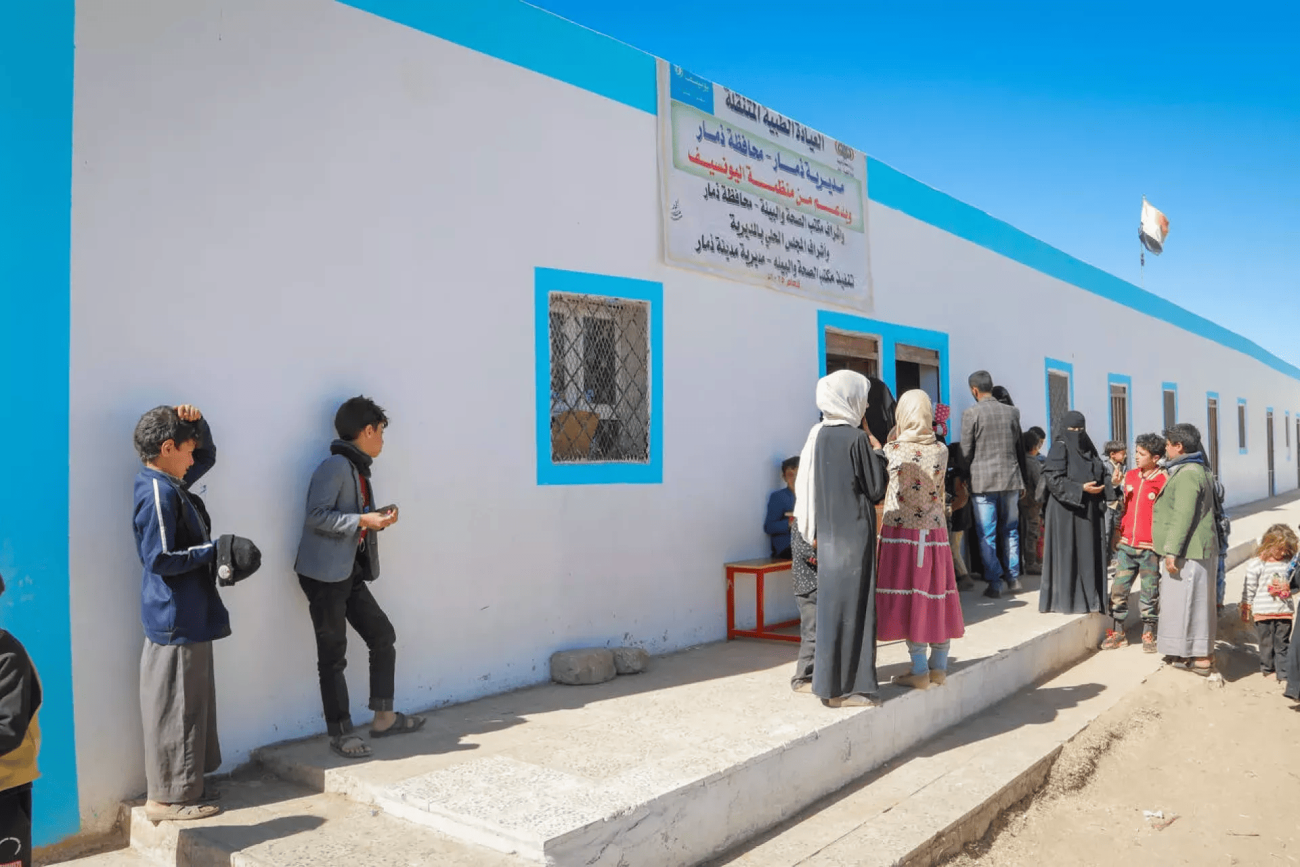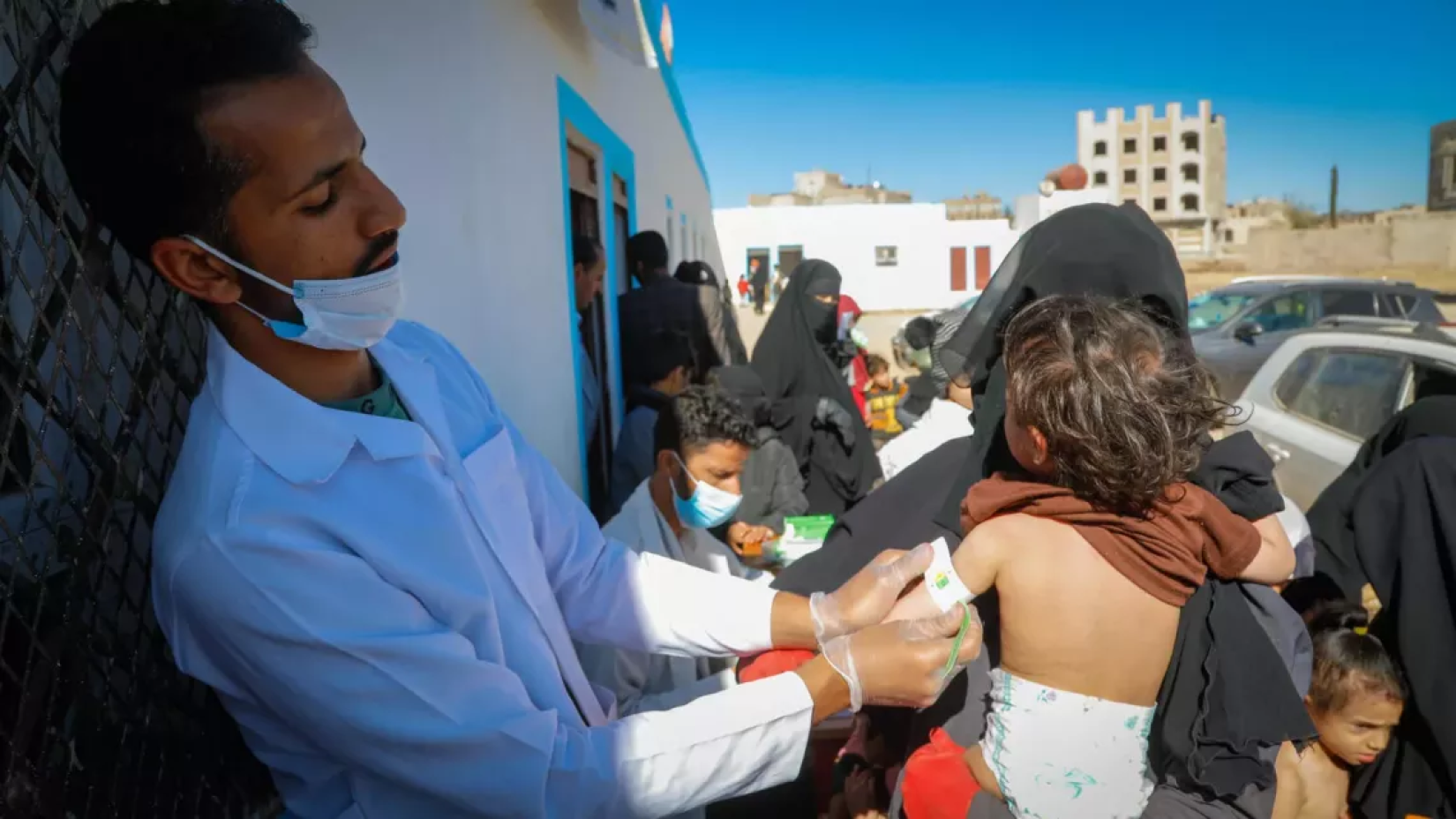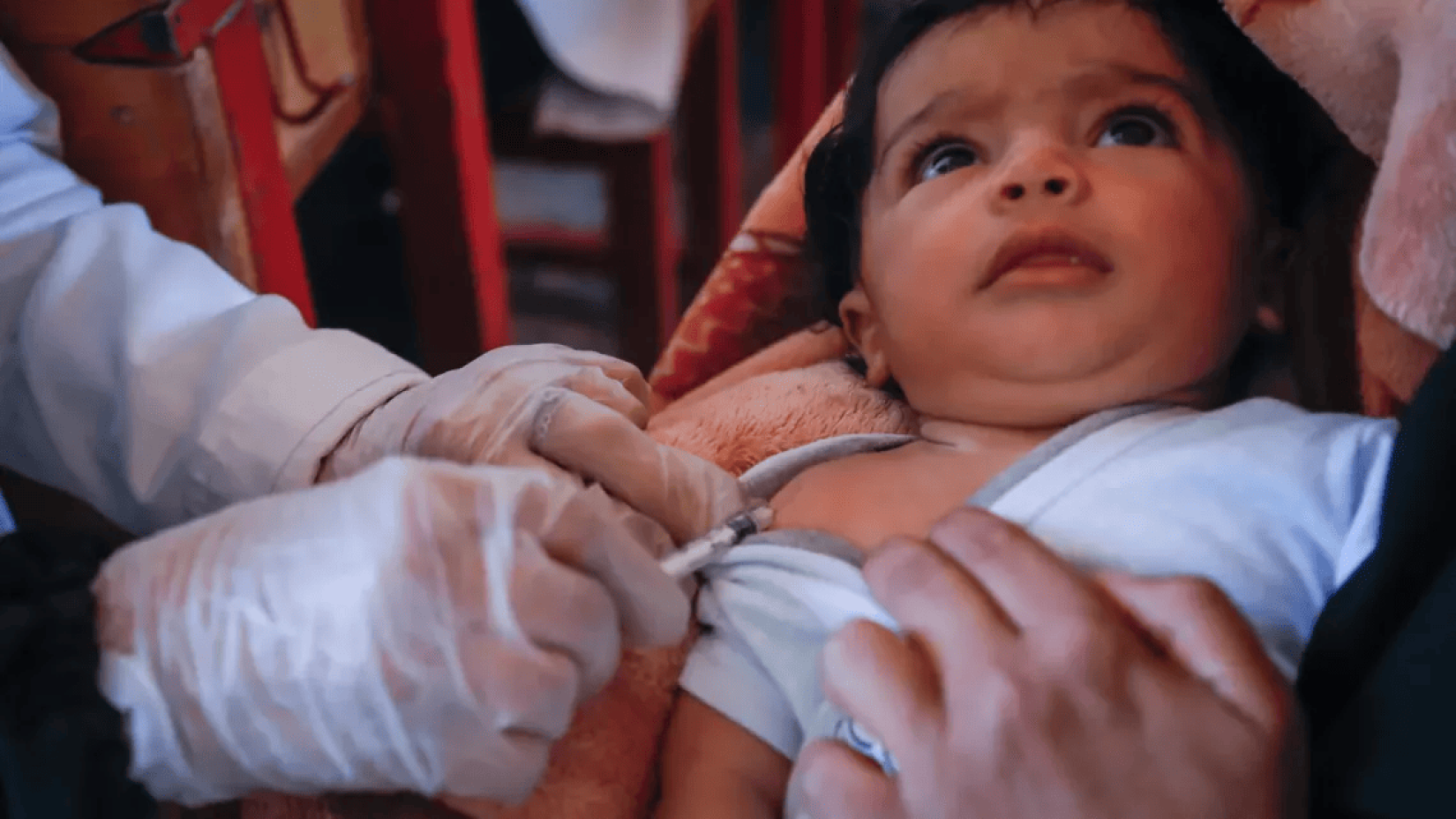UNICEF Yemen: Hope on Wheels - UNICEF Mobile Teams Are Saving Lives in Yemen

UNICEF Mobile Teams Are Saving Lives in Yemen
“Mothers and children are the foundation of any society. When they are healthy, the whole country is healthy,” says Khawla Ahmed Abdullah Al-Hilmani, a 29-year-old midwife who works in one of the mobile teams deployed in Yemen with the support of UNICEF.
Malnutrition and disease outbreaks, civilian casualties, lack or inaccessibility to healthcare and other urgent services, and other life-threatening risks to the most vulnerable,—all those are the evidence of a full-scale humanitarian crisis. And the people of Yemen have been suffering from it for a decade now.
UNICEF and its donors such as the Swiss National Committee for UNICEF have already successfully supported implemented many interventions in Yemen, helping people in the war-torn country get access to health and nutrition services and safe water and education. Today, let’s talk about UNICEF’s mobile teams—a vital service platform that brings essential health and nutrition services directly to families in remote.
Swiss National Committee Support for UNICEF, enabled the deployment of several mobile teams in several governorates, including Hajjah, Hodeidah, Taiz, Dhamar and Al Dhale`a, reaching the most vulnerable beneficiaries including children under five and pregnant lactating women.
Jamila Ali Al-Moshki, a midwife from Dhamar explains why the deployment of mobile teams is so important for the local population: “Before this mobile team, we had no appropriate place to accept patients, screen and treat them from malnutrition and other minor illness or vaccinate children. I hope this project continues, as it helps so many people here.”
In Hajjah governorate, for example, these teams save the lives of malnourished children, pregnant women, and young mothers. The Mobile teams are deployed to work in places where fixed health centers are inaccessible or non-functional.
Every day these mobile teams reach thousands of families, doing medical check-ups, nutritional screening and vaccinations and providing nutritional support and consultations. What most of us are lucky to see as essential services would be inaccessible for millions of people in Yemen without the work of such mobile teams and their devoted personnel.

Dr. Ali Abdullah Aziz Al-Khader, Director of the Health Office in Dhamar District explains why the mobile team in Dhamar is extremely important: “Dhamar is located between two governorates, so a team here is easily accessible for many people, who otherwise would not be able to get the medical help they need,” he says. “Yes, we face many difficulties, but we never stop working because for many people this team is the only chance for treatment and recovery.”
Despite all the challenges—logistical hurdles, ongoing conflict, and the constant need for medical supplies to add qualified personnel—they keep on working with the help of organizations like UNICEF and their donors, saving one life after another.
For many families, the mobile teams are more than just vehicles, medical supplies, and people who explain how to take care of their babies. They are a beacon of hope.
“My son is three years old and suffers from malnutrition,” says Ishraq Mohammed Al-Masnai, a young mother from Dhamar. “I am grateful to the doctors in this team. Thanks to them, my son and I receive all the necessary treatment.”
In Dhamar, 4-year-old Adham receives treatment at a mobile team operating under the supervision of the Health and Environment Office. He is just one of the hundreds of children who receive help and life-saving care from the mobile team in the area.

Khawla Ahmed Abdullah Al-Hilmani, a midwife, says: “We help pregnant women and young mothers, educate them about nutrition and reproductive health, and provide antenatal and post-natal services. However, sometimes people do not fully understand the idea of vaccination and regular check-ups” – she adds.
A 2-year-old Ibtisam, who suffers from malnutrition and receives treatment from the same team, made remarkable progress, thanks to the dedication and care of these selfless professionals. She and other young children who suffer from malnutrition go through regular check-ups and receive special nutritional therapeutic food referred to as Plumpy Nut as well as some systematic treatments and micronutrient supplementation, distributed at the mobile team, and their parents get qualified advice about proper care and nutrition for their children, vaccinations, and other medical services they may need.
Despite impressive achievements and support from local and international partners, these initiatives face many challenges. Insecurity, fuel shortages, unsustainable funding, and disrupted supply chains make it hard to predict how and whether the project will develop, reaching more families in need.
While the mobile teams have dramatically increased healthcare access in Yemen, still not all regions receive the comprehensive care they need due to funding. However, UNICEF, along with its partners, remains optimistic and dedicated to their goals, expanding these services further and building on the success already seen in governorates like Al Hodeida, Hajjah and Raymah.
These mobile teams are not just about delivering health and nutrition services; they represent a powerful commitment to reach every child, every family, and every community in need, saving the future of Yemen one life at a time.

